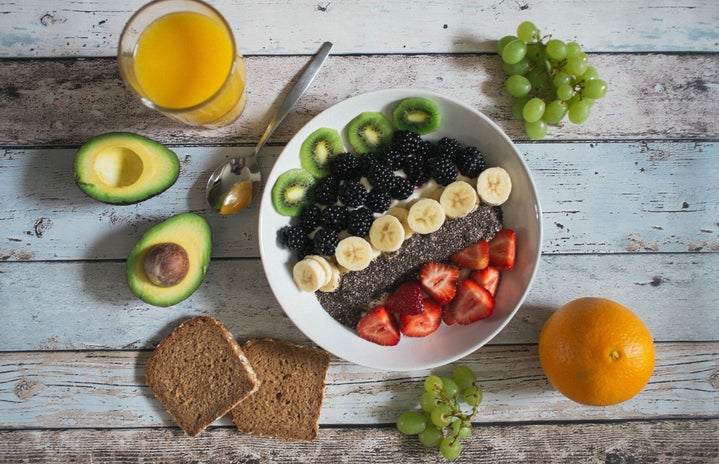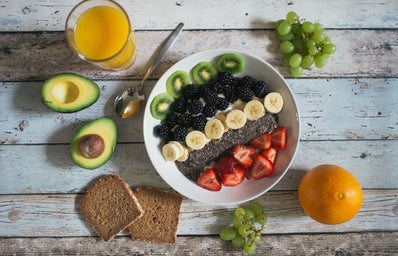“The connection between the gut and the mind is not a one-way street, but a complex highway of communication.”
TheMind-GutConnection
The Mind-Gut Connection
What is the mind and gut connection? You mean, your gut has a little brain of it’s own? I’m a psychology student minoring in nutrition at Bowling Green State University and starting my masters’ in Clinical Mental Health Counseling in the fall. My goal is to specialize in eating disorders, nutrition, and the impact on mental health disorders such as anxiety and depression. In the past, I have experienced disordered eating, and digestion issues relating to my anxiety. Through therapy and the help of friends, family, and my own determination to feel better and be healthy, I found what works for me. A book I recommend that is very helpful is “The Mind and Gut Connection” by Emeran Mayer. It’s about how the hidden conversation within our bodies impacts our mood, our choices, and our overall health. Feeling butterflies, having a pit in your stomach, and “just going with your gut” are all ways to connect and understand your own mind and gut connection. Now, I’ll give you some key takeaways from the book and what I found to be insightful, helpful, and what I implement in my routine.
Key Takeaways from Emeran Mayer
Vagus nerve: The vagus nerve is the main nerves for the parasympathetic nervous system, which helps control the body’s relaxation responses. It has many function like controlling and regulating digestion, immune system, and heart rate. Yoga and massages can promote vagus nerve activity.
Microbes in the digestive system: The microbes in the gut can effect emotions and behavior; emotions and behaviors can lead to changes in the gut microbiota. The relationship between mental health struggles such as stress, anxiety, and depression can lead to some discomfort or a chronic illness such as, IBS. The human physiology is effected by various types of emotions.
Enteric nervous system: This is the little brain in your gut. In your stomach this second brain includes nerve cells that process sensory information and produces those gut feelings. Messages travel between the brain and the digestive system. The microbes respond to information like emotional state and stress level and adjust accordingly.
Food choices: Probiotics enhance gut health such as, yogurt or supplements, and fermented products. The Mediterranean diet was talked about very highly in the book. This is because it contains little animal fat which is known to be harmful on the gut if consumed in higher amounts. This diet includes vegetables, olive oil, and fish which is high in Omega-3 fatty acids. Mayer recommends this because it has proven to benefit brain-gut health as well as organically grown foods.
My Perspective: Healing
In the morning, I drink a glass of water first thing to hydrate, energize, and balance my mood because it helps with body regulation. Then, I have some warm ginger lemon or chai tea. Drinking tea is not only comforting and delicious but also can boost the immune system and contains antioxidants. Eating whole foods that are nutrient dense are nourishing and fill the body with essential vitamins and minerals for growth and overall health. Allowing time to rest can be reading a book or listening to music or watching a show.
At some point during the day, stretching and doing yoga helps release stress hormones and balance the sympathetic nervous system. This is done by focusing on the breathe and doing a mindful meditative flow. A meditation I learned in one of my classes is called the 5-4-3-2-1 grounding technique. First, notice five things you see, four things you can touch, three things you can hear, two things you can smell, and one thing you taste. Active movement and exercise is beneficial whether it is a strength workout or cardio. When working on mental health and physical health at the same time, you are strengthening your body and mind. Muscles grow and become stronger while the neural pathways in your brain reroute to clearer and more optimal paths. Lastly, the microbe in your digestive system becomes healthier as you cook balancing meals and nourish your body to feel good.


